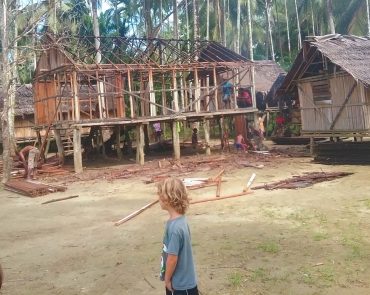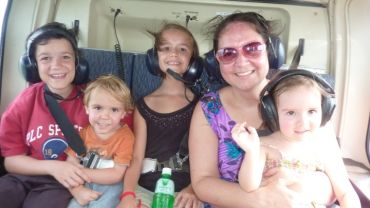
Noah, Jacob, Ellie, Me and Jenny Beth, Feb 2012
I’ve often written about expat life and the hardships that come along with this life style. However, this post is not about hardships. It’s about community and how people have circled up to help the kids and me. Ben has been gone for two weeks now, and still has two more to go. He is consultant checking the books of James and Mark in nine languages, while I have stayed here at Ukarumpa with the kids as it was too soon after furlough to put our teens in the hostel and take the little ones out for a village stay.
I haven’t had a chance to feel overwhelmed or lonely or sorry for myself because our community has been here for me. From phone calls checking in, offers of childcare and meals, help with fixing our dog run, to the chief helicopter pilot arranging for Ben to make it back a week early in time for Noah’s play, the feeling of being part of a community has really made these two weeks go by quickly. I am not saying that everything is easy, but I am grateful for all of the little and big things that people do for me. I am a fairly independent person and it’s not easy to accept help. However, in doing so, I remember how much joy it gives me when I am able to help out a friend. And so the circle of giving keeps going here, over and over, time and time again. All of us expats are separated from relatives in our home countries and so part of the thriving happens when we stand in for parents, siblings, grandparents, aunts and uncles. I know that this is a treasure I sometimes take for granted but for today (and hopefully future ones), I am full of gratitude.
Furthermore, I am grateful for the people whose jobs directly impact me and my family. These hardworking missionaries and Papua New Guineans are running the schools, flying and fixing aircraft, fixing computers, stocking the store, keeping our internet running (oh how wonderful it was to talk to my college aged son yesterday!!) arranging for visas and passport renewals, and countless other jobs. All of these people are here to see the work of Bible translation going on in Papua New Guinea. So thank you from our family, and from the people of the Aitape West for your service.
I can’t finish here without mentioning our partners, friends and family back home. When I think about the host of people who are keenly invested in our work and in the lives of the other missionaries here, it is overwhelming. You are an important part of the picture, so thank you.
The way God designed our bodies is a model for understanding our lives together as a church: every part dependent on every other part, the parts we mention and the parts we don’t, the parts we see and the parts we don’t. If one part hurts, every other part is involved in the hurt, and in the healing. If one part flourishes, every other part enters into the exuberance. 1 Corinthians 12:25-26
 The Pehrsons in PNG
The Pehrsons in PNG Feast or Crumbs
Feast or Crumbs Arop: Sacrifice, Tragedy, Transformation
Arop: Sacrifice, Tragedy, Transformation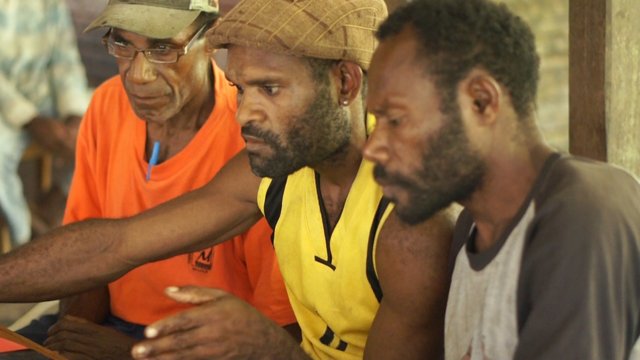 God Calls National Translators
God Calls National Translators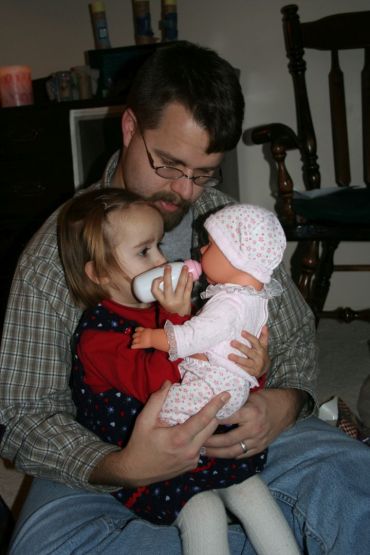

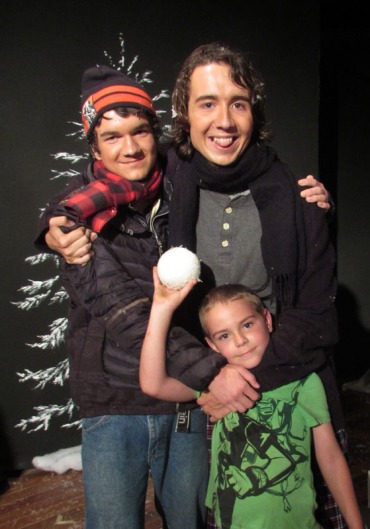

![20160509_111301[1]](https://livingletters.files.wordpress.com/2016/05/20160509_1113011.jpg?w=370)




